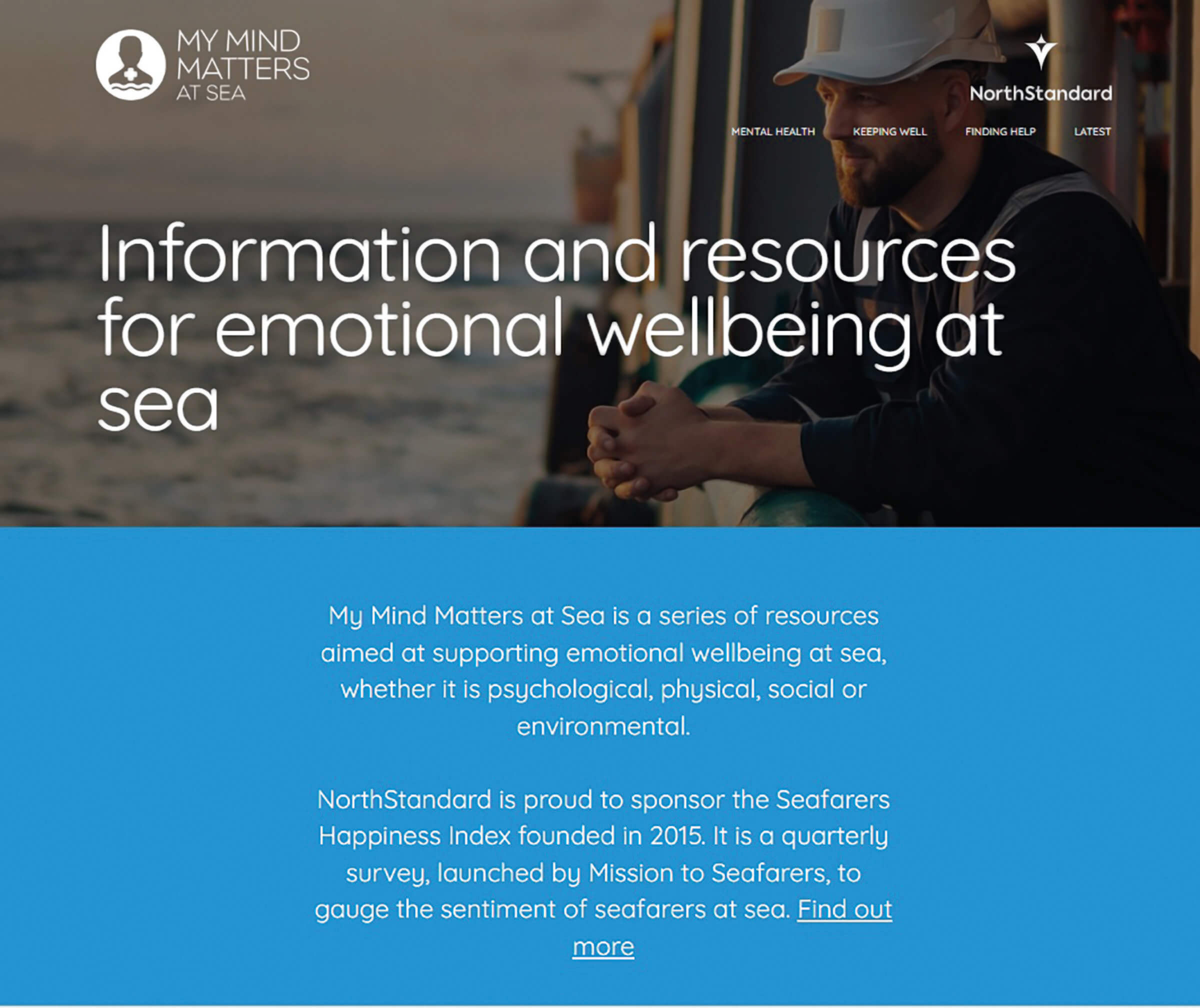Resources
A collection of free resources to help you raise funds and share the work we do

By Yves Vandenborn
While the attention of the maritime professional is constantly steered towards best practice on safety, security and environmental issues, those working at sea know that awareness also depends heavily on state of mind. Seafarers who benefit from good rest, good food, exercise, socialisation and contact with those at home are likely to be happier, more motivated and better placed to attend to their duties.
These are some of the reasons why NorthStandard advocates consistently for improving seafarer welfare, and is a proud sponsor of The Mission to Seafarers’ Seafarers Happiness Index.
It was therefore heartening to learn that the SHI captured rising seafarer happiness levels in its first quarter 2024 report, especially given declines through 2023.
NorthStandard was also encouraged that the overall increase from 6.36/10 to 6.94 was driven by gains across all 10 markers used.
However, promising figures from one quarter can easily be reversed in the next. It is therefore critical that welfare and wellbeing are given continuous support and that the maritime professional remains mindful of self-care.
To help support this, NorthStandard has developed extensive, award-winning resources designed to assist seafarers. Among them is My Mind Matters at Sea – an online information resource covering emotional wellbeing at sea. Meanwhile, Mind Call at Sea is a dedicated emotional support helpline available to seafarers on vessels insured with NorthStandard, operating 24 hours year-round.
Visual aids
In line with the need for wellbeing to be maintained on an ongoing basis, North- Standard also continuously seek ways to reinforce ‘best practice’ in self-mainte- nance among seafarers.
To get the message across directly, NorthStandard has designed four groups of posters for the bulkheads of our members’ ships to encourage better decision making among seafarers.
Each group focuses on one of four topics which have huge impacts on the wellbeing of modern seafarers: healthy diet, fitness, mental wellbeing, and socialisation.
While it may be useful to remind people to avoid unhealthy foods that are high in sugar, salt, and saturated and trans fats, the NorthStandard
campaign goes one step further to engage the viewer by posing a question and revealing the answer behind a QR Code alongside valuable advice on how they can look after specific areas of their wellbeing.
In one example, the poster asks the viewer what exercise would be needed to burn off the 200 calories in a bowl of white rice (answer: walk approximately 3 km).
Where mental wellbeing is concerned, as well as guiding the viewer to helplines and counsellors ashore, the QR Code embedded in the relevant NorthStandard poster offers the seafarer the opportunity to ‘reach out to the mental champion on board’.
Regular human contact is encouraged through a gentle but effective campaign: one set of posters encourages the viewer to simply connect with other seafarers on board, to watch a movie, have an evening of karaoke, work out together, or even to ‘multiply with Wi-Fi’.
Even though the reminders are gentle, they send a serious message as happy and healthy seafarers translate into substantial savings for the shipping industry. Poor lifestyle habits often result in medical conditions that derail the health and career of a seafarer, while also reducing their operational performance and acting as a drain on an organisation. Promoting seafarer wellbeing is therefore in everyone’s best interest.
Yves Vandenborn is head of loss prevention – Asia Pacific for NorthStandard. For further information on the NorthStandard poster campaign for seafarer wellbeing go to https://www.standard-club.com/knowledge-news/standard-clubs-seafarer-wellbeing-poster-campaign-1222/